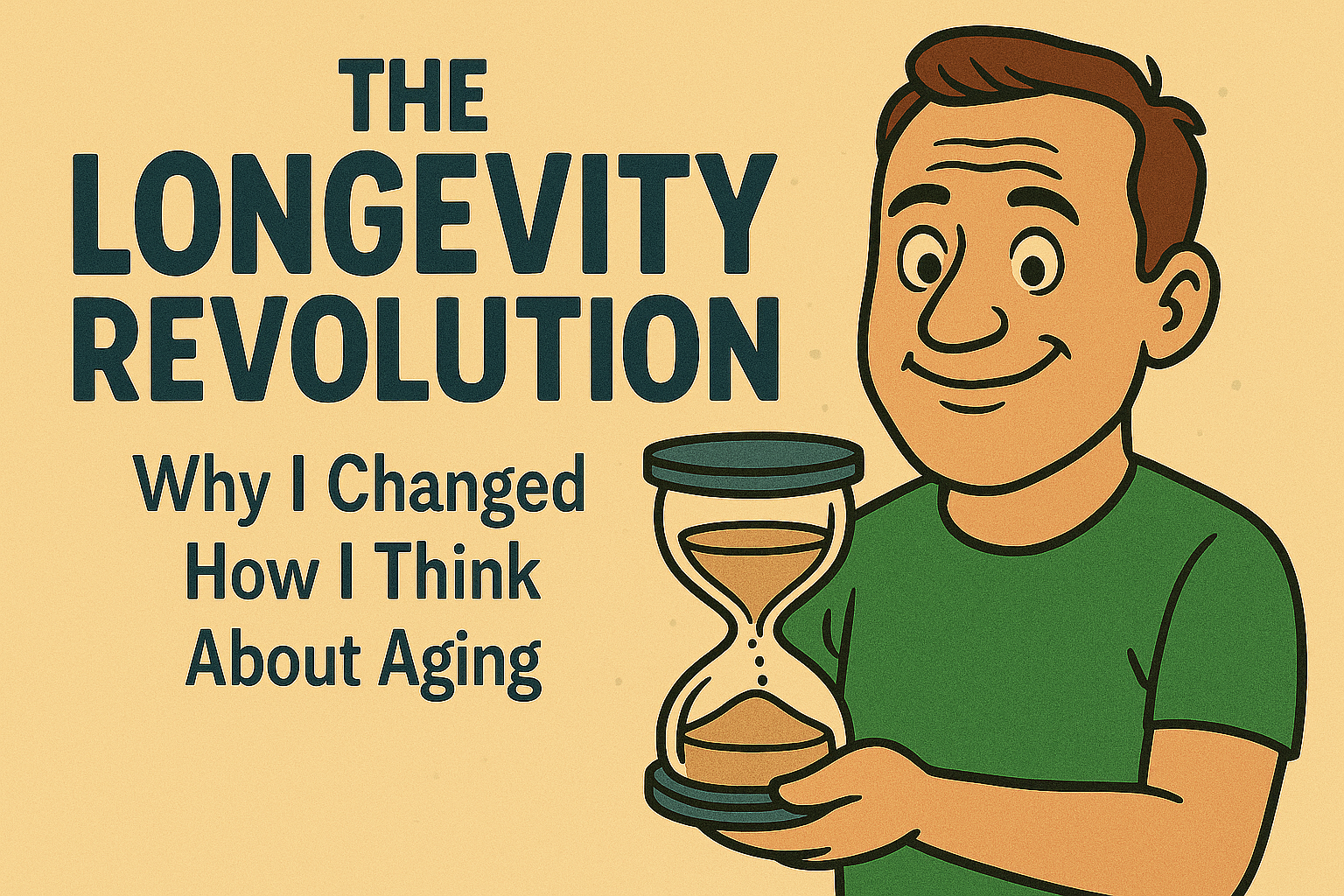I used to think aging was inevitable. A slow drift into stiffness, low energy, and medications. I accepted it as “just the way it is.” But somewhere around the age of 40, I started questioning that narrative. Not just questioning it, but actively challenging it.
That shift came after reading Lifespan: Why We Age—and Why We Don’t Have To by Dr. David Sinclair, a Harvard researcher whose work completely reframed the way I think about aging. Sinclair argues that aging is not just a natural process but a disease—one that can be slowed, treated, and even reversed. That idea hit me hard. I realized I had been reacting to age like a passive observer, not an active participant.
At the same time, I was discovering Bryan Johnson’s Blueprint, an ongoing self-experiment where Johnson uses data, science, and relentless discipline to optimize his biological age. He treats his body like a system that can be tuned and upgraded. Between Sinclair’s theories and Johnson’s radical application, I found a new lens: aging isn’t a destiny — it’s a strategy.
Why I Changed My Mind About Aging
I used to believe that aging meant inevitable decline. But here’s what I’ve learned: decline is not inevitable — neglect is.
These were the wake-up calls:
- I didn’t have enough energy to get through my day.
- I’d crash after meals. My wife would point it out regularly.
- I was gaining weight, sleeping poorly, and starting to take high blood pressure seriously.
I finally asked myself: Why don’t I have the energy I used to?
That question became the seed of a personal revolution.
The Lifestyle Overhaul: My Longevity Playbook
Inspired by Lifespan and Blueprint, I began rebuilding my life.
🌱 Dietary Changes
- I used to eat red meat daily. Now I have chicken or fish just once or twice a week.
- I eat salad every day.
- I completely cut out soft drinks.
- I eliminated processed sugars and most starchy carbs.
- I started being intentional about what I eat, and why I eat it.
😴 Sleep Discipline
- I removed the TV from our house.
- I stopped using gadgets in bed.
- I began protecting my sleep like it was my most important investment—because it is.
The result? I lost 3–4 kg within months and felt an energy shift I hadn’t felt in years.
Bringing in the Experts
At 43, I took the next step — I hired a nutritionist to help me get rid of 2–3 kilos of stubborn fat. I didn’t want to starve myself or rely on fads. I wanted structure, education, and accountability.
Here’s what helped:
- I took photos of every meal and sent them to her.
- She gave me feedback, helped me optimize.
- I learned how to eat to fuel — not just to satisfy.
The results? I lost 1 kilo per week without starving.
More importantly, I reduced my body fat to 16% — something I hadn’t seen since college.
How I Stay Accountable Today
I don’t work with a nutritionist anymore. But I didn’t drop the habits.
Now, I hold myself accountable.
I take photos of my meals — for myself.
I remind myself of why I made this change.
I want to live longer.
I want to live better.
I want to love myself inside and out.
This isn’t a diet. It’s not a phase. It’s a lifestyle commitment. A declaration that I am not aging on autopilot.
The Lesson That Changed Everything
Both David Sinclair and Bryan Johnson preach this — and now I live it:
When you know why you’re doing this… the effort disappears.
You stop craving junk food. You stop needing dessert.
You start craving clarity, energy, lightness.
I didn’t just change how I live.
I changed how I think about aging.
And that’s where real longevity begins.
📚 References & Inspirations:
- Sinclair, D. A., & LaPlante, M. (2019). Lifespan: Why We Age—and Why We Don’t Have To. Atria Books.
- Bryan Johnson’s Blueprint Project: https://blueprint.bryanjohnson.co/
